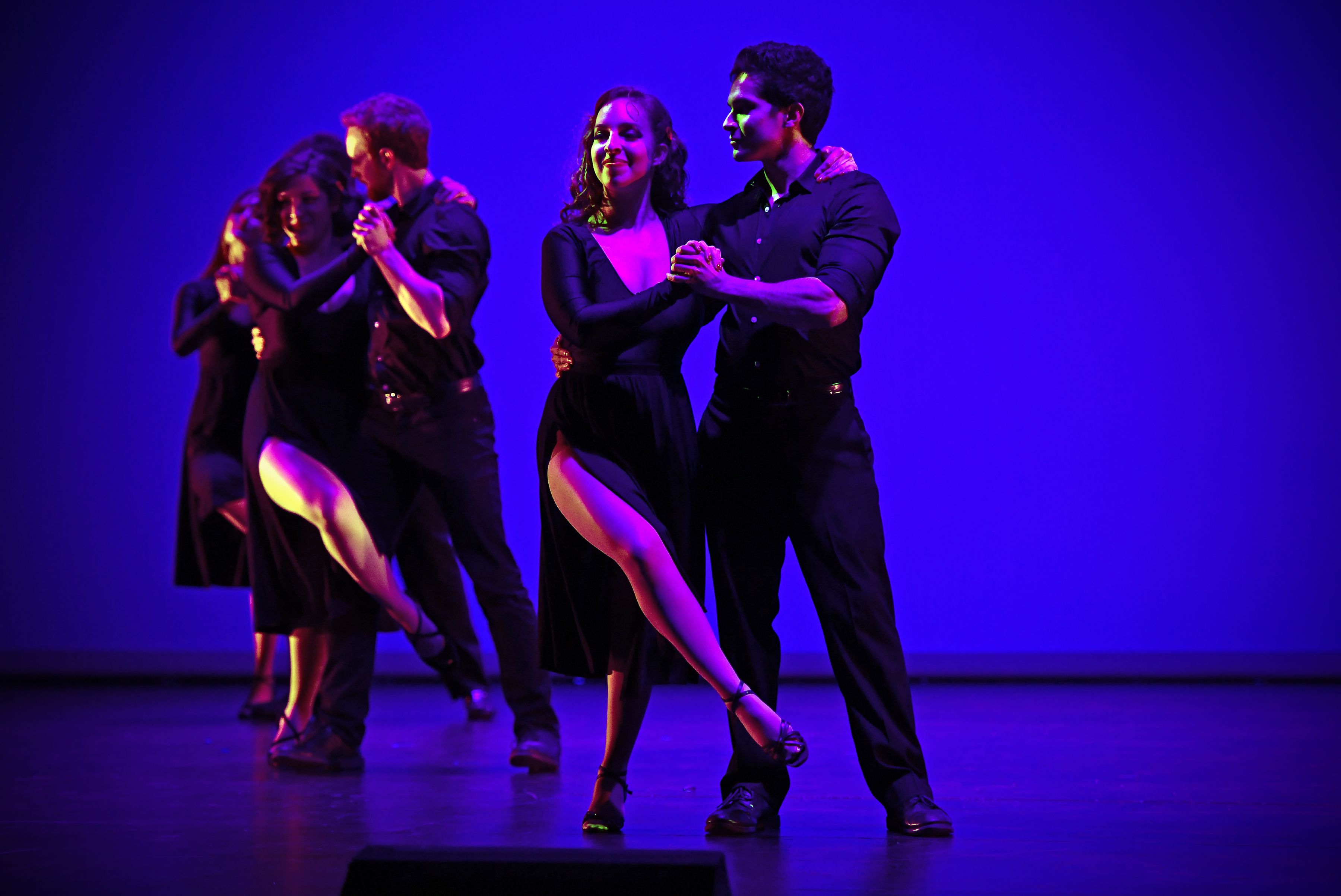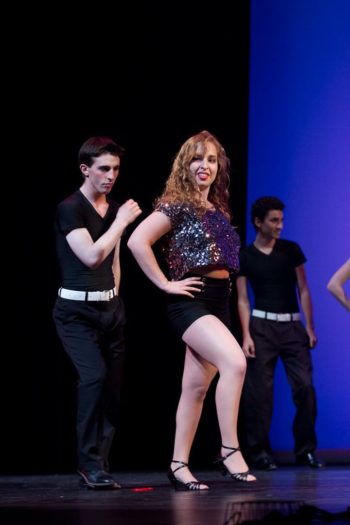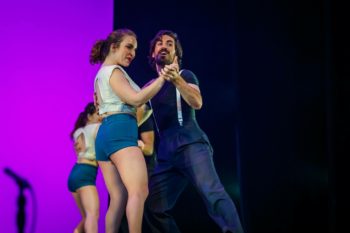Student celebrates Latin American culture while helping the underprivileged

Monti performed the tango at her fourth and final Carnaval at Edison Theatre. James Byard/WUSTL Photos
Senior Denise Monti says the Association of Latin American Students gave her two special gifts — a sense of direction and sense of rhythm.
Monti just appeared in her fourth and final Carnaval, ALAS’ annual showcase. For the first three years, she danced bachata, the popular social dance of the Dominican Republic. This year, she performed a classic Argentinian tango.
“At first, I couldn’t move my hips the right way but every year I got better,” said Monti, ALAS co-president. “Now, with the tango, I’ve had to learn how to drag my feet. It’s a totally different style using completely different muscles. Every dance in Carnaval has its own subtleties that make it unique.”
Carnaval celebrates the spectrum of Latin American dance from Colombia’s cumbia to Cuba’s cha-cha to folklorico, the traditional folk dance of Mexico.
“There is a lot more than salsa out there,” Monti said. “Every dance is amazing in its own way.”
The same is true of the region’s cultures. Monti hopes to one day serve different Latin American immigrant populations as a physician. After a gap year working at the Institute for Public Health at Washington University, Monti plans to attend medical school.
“My work with ALAS has really impacted me,” said Monti, a Moog Scholar majoring in biology and Spanish in Arts & Sciences. “I have learned how Latin American populations are underserved and the boundaries that exist between patients and physicians.”
Born in Chicago but raised in Pittsburgh, Monti learned Spanish before English. Her extended family lives in Uruguay, and she visits every year.
Still Monti recognizes language fluency and cultural proficiency are not the same.
“You can always get translators, but your patient must feel comfortable asking you questions in the first place,” Monti said. “It’s really easy to think your culture is the norm and everyone else’s is foreign. The reality is everyone’s just different. What’s most important is to appreciate where other people are coming from.”
by Diane Toroian Keaggy

